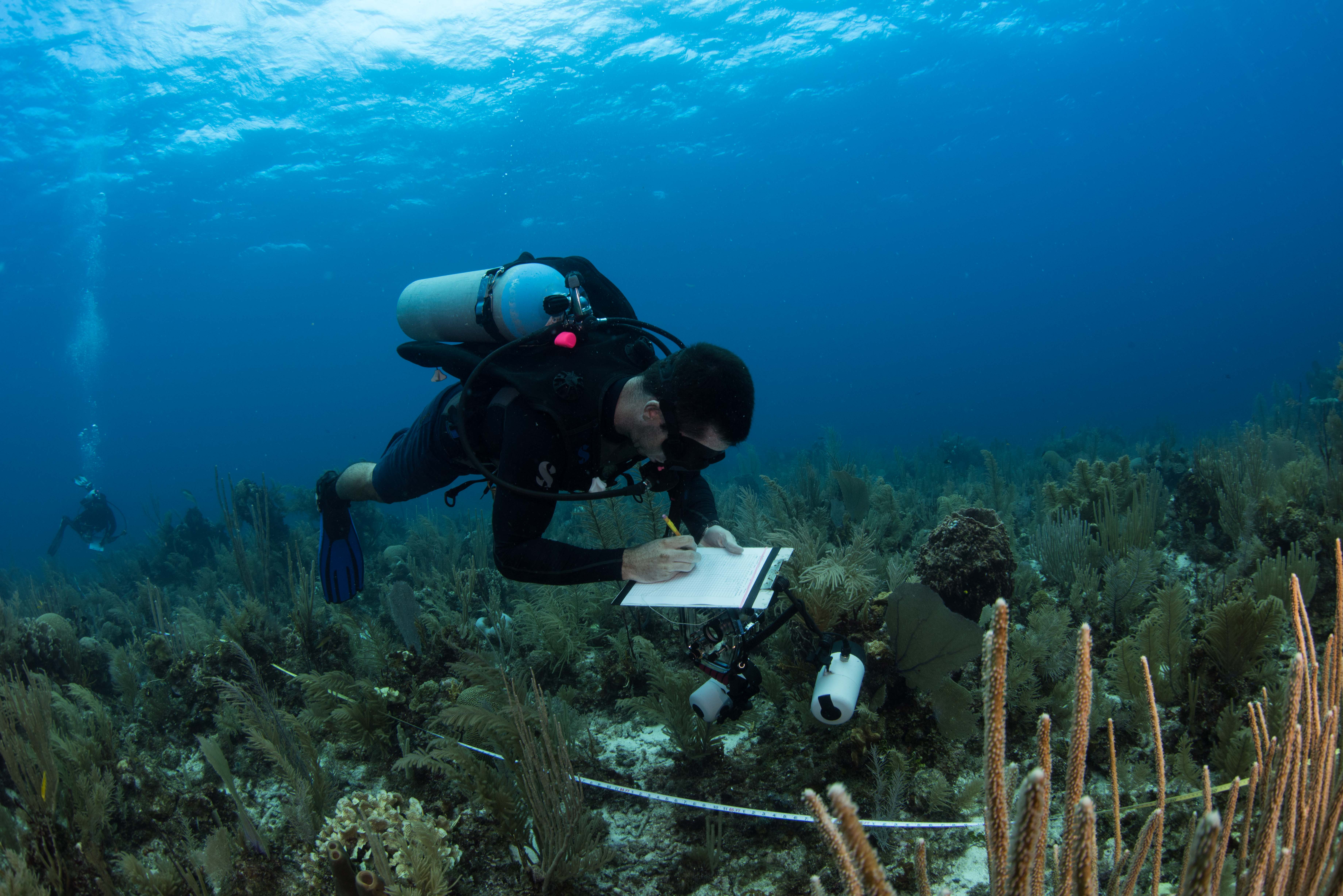
A massive study of nearly 1800 tropical coral reefs around the world has found that marine reserves near heavily populated areas are struggling to do their job but are a vast improvement over having no protection at all.
IMAS researchers Professor Graham Edgar and Dr Rick Stuart-Smith, who co-founded the citizen science project Reef Life Survey (RLS), were involved in the study, which was led by Professor Josh Cinner from James Cook University.
The researchers evaluated fish biomass and the presence of top predators on coral reef sites across 41 countries, states, and territories.
They used a new way of measuring the human pressures, such as fishing and pollution, to study the effects these are having on fish on the world’s reefs.
The study involved 37 scientists and RLS data were used in conjunction with data from researchers all over the world.
“As has been clear from a range of previous studies, fish stocks are most reduced on reefs that are easily accessed by fishers,” Professor Edgar said.
“The study found marine reserves with high human pressure typically have only a quarter of the quantity of fish as in distant reserves.”
However, while reserves in more heavily populated regions of the tropics do not carry as many large fish as remote reserves, the fact that surrounding areas are heavily fished means that recovery is greater than in isolated areas.
“Consequently for most fisheries species, marine reserves have the greatest positive effects where human pressures in surrounding areas are medium to high,” Professor Edgar said.
“This was another large-scale study that included data collected by citizen scientists in the Reef Life Survey program.” Dr Stuart-Smith said.
“The detail and breadth of information from the global RLS program developed and managed here at IMAS has supported a wide variety of international research.
“This time the information was used to better guide management of coral reef systems, including those in developing countries.”
Professor Cinner said the study makes clear the benefits and limitations of implementing key coral reef conservation strategies in different types of locations.
“Our research shows where managers will be able to maximise certain goals, such as sustaining top predators or improving the biomass of key fisheries species, and likewise, where they will be wasting their time,” Professor Cinner said.